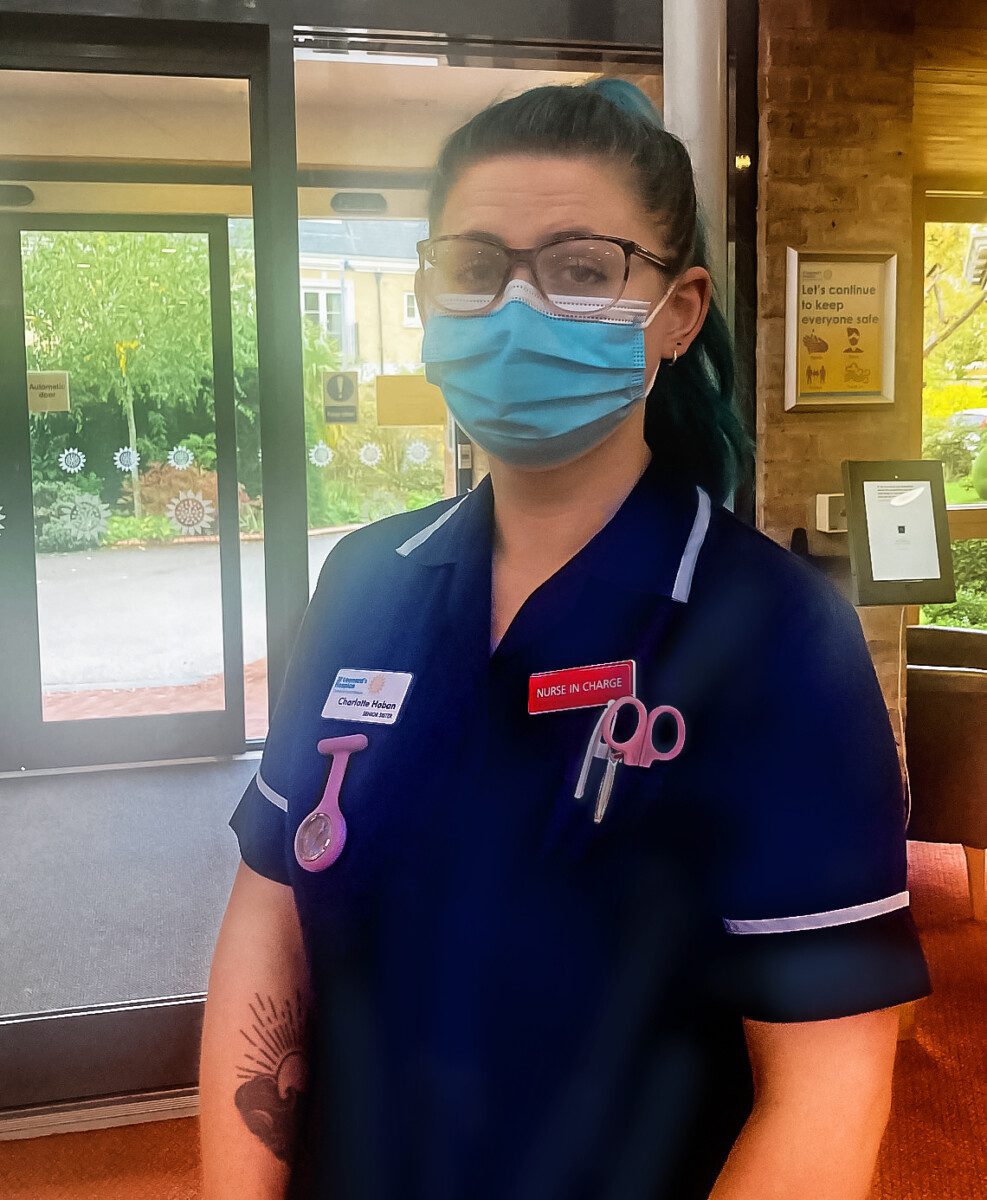Every life matters.
Our care is not just limited to the Hospice and people’s homes; we are passionate about giving everyone in our community access to our unrivalled care and support. We recently worked with national charity, Changing Lives, to initiate a ground-breaking palliative and end of life care project for homeless or vulnerably housed people.
Homelessness is a term to describe people who are rough sleeping, living in a hostel, supported living accommodation, sofa surfing or other difficult circumstances. An abstract from the Hospice UK conference 2021 shared that people experiencing homelessness have the worst health outcomes in society, with the least access to services. People living in such circumstances often have complex physical and mental health needs and many die 30 years before the general population because they do not have access to good care.
To support the project, Charlotte Hoban, our Senior Sister on the IPU, took on the role of Complex Care Coordinator with the aim to reduce the inequalities in access to palliative care for people experiencing homelessness. Part of her remit was to upskill staff and facilitate a closer working relationship between the palliative care and the homelessness sectors in the region. She delivered training to other service providers working with people experiencing homelessness, helping them to recognise deterioration and the support for advanced ill health. Here she shares a story of how she supported vulnerable patient with housing.
“Malcolm (name changed for confidentiality) was 57 years old. He had recently been diagnosed with cancer, hepatitis B and chronic obstructive pulmonary disease. Malcolm was a care leaver and had a history of substance misuse, rough sleeping and mental health problems. He moved into his council property from a hostel 20 years ago. As Malcolm’s physical health problems began he found it harder to maintain his living environment. The only consistent support Malcolm had was from his work in the drug and alcohol team (which I now realise is not uncommon). When the drug and alcohol team were concerned that he had cancer, they referred him to the hospital but he did not attend any of his appointments. Malcolm became so weak that he was unable to get out of bed and his mental health deteriorated as he prepared himself to die, alone, in his flat. However, through assertive outreach instigated by the drug and alcohol team, Malcolm was supported to go into hospital. They were shocked at the conditions that Malcolm had been living in.
“Malcolm was in the hospital for four months. Before being discharged the housing management officer arranged to change the locks, as Malcolm had lost his keys, and organised a deep clean of the flat to provide safe living environment for when he returned. He was transferred to the Hospice for symptom management and support with his complex social issues. He was assessed by our team and it was felt that he could not safely return to his upstairs property due to reduced mobility.
“I supported Malcolm to apply for rehousing. His application was contested by housing registration as they had a hospital assessment that stated Malcolm was able to walk up two flights of stairs with no assistance. Unfortunately, this had become the main barrier to getting Malcolm rehoused. I continued to pursue a suitable tenancy for Malcolm, who after over four months in a healthcare environment just wanted to get home safely. I strongly believe that if housing and health services could work collaboratively with people experiencing homelessness this would facilitate a more holistic approach with better outcomes.”
